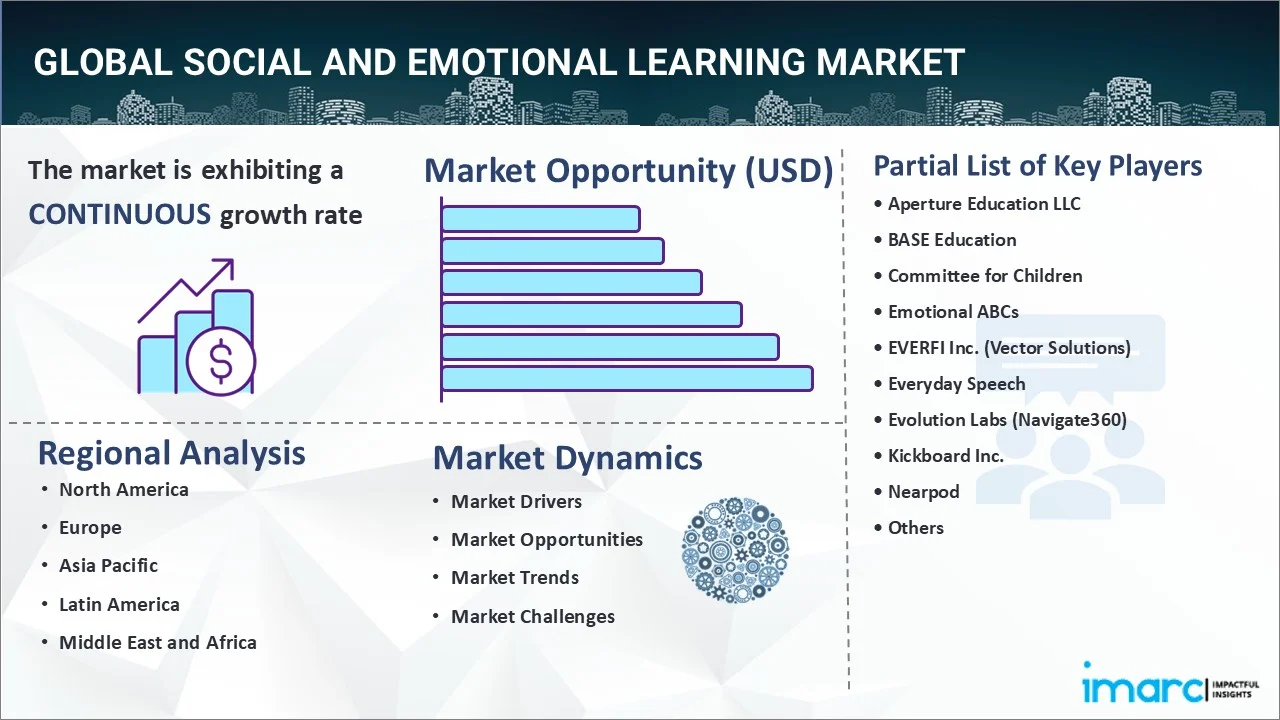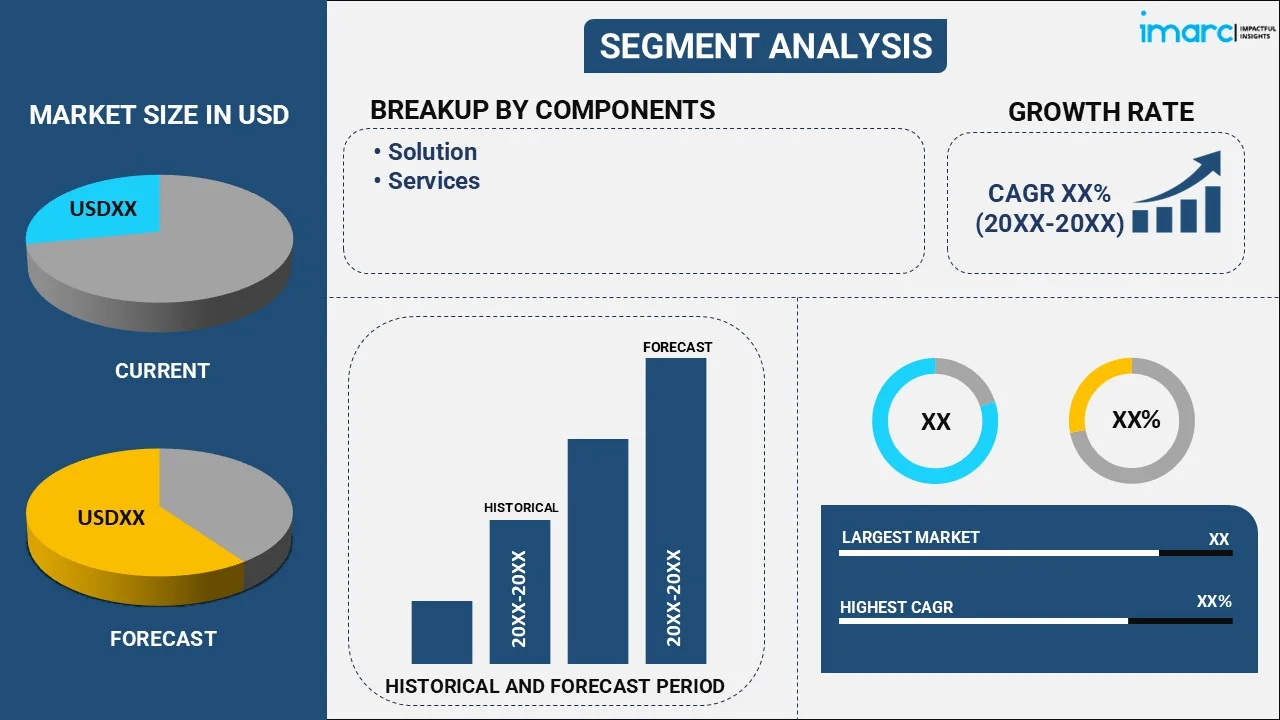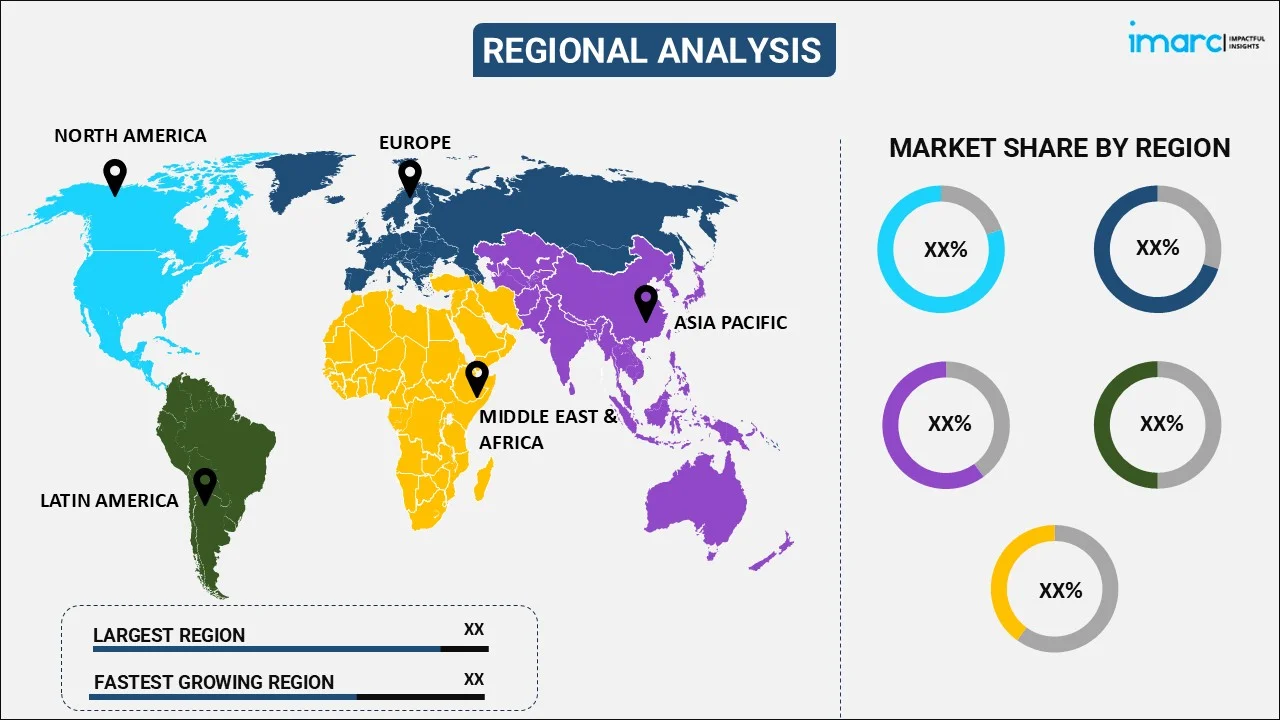
Social and Emotional Learning Market Report by Component (Solution, Services), Types (Web-based, Application), End User (Pre-K, Elementary School, Middle and High School), and Region 2025-2033
Social and Emotional Learning Market Size:
The global social and emotional learning market size reached USD 4.0 Billion in 2024. Looking forward, IMARC Group expects the market to reach USD 21.1 Billion by 2033, exhibiting a growth rate (CAGR) of 19.4% during 2025-2033. Significant growth in the education industry, rapid adoption of SEL solutions across educational institutions, the increasing awareness of mental health and well-being, and rising initiatives by governing agencies represent some of the key factors driving the market.
|
Report Attribute
|
Key Statistics
|
|---|---|
|
Base Year
|
2024
|
|
Forecast Years
|
2025-2033
|
|
Historical Years
|
2019-2024
|
|
Market Size in 2024
|
USD 4.0 Billion |
|
Market Forecast in 2033
|
USD 21.1 Billion |
| Market Growth Rate 2025-2033 | 19.4% |
Social and Emotional Learning Market Analysis:
- Major Market Drivers: Increasing awareness of the importance of mental health and well-being is propelling the demand for SEL programs. In addition, the rising integration of SEL into standard curricula by educational institutions is also driving market growth.
- Key Market Trends: The incorporation of digital platforms and online tools for SEL training is becoming prevalent. Personalized and adaptive learning methods are gaining traction in the SEL market, enhancing user engagement.
- Geographical Trends: North America leads the market due to early adoption and strong institutional support for SEL programs. The Asia-Pacific region is witnessing rapid growth, driven by increasing educational reforms and the focus on holistic development.
- Competitive Landscape: Some of the key market players include Aperture Education LLC, BASE Education, Committee for Children, Emotional ABCs, and EVERFI Inc. (Vector Solutions), among others.
- Challenges and Opportunities: One of the primary challenges is the lack of standardized metrics for evaluating SEL outcomes. However, the growing investment in SEL research and development presents significant opportunities for market expansion.

Social and Emotional Learning Market Trends:
Rapid digitalization of the education industry
The growing digitalization of the education industry, as well as the increased adoption of connected and smart devices in e-learning, are driving market expansion. With the digitalization of the educational industry, social and emotional education is playing an increasingly important role in the reformation and modernization of the global educational environment. It also assists schools in addressing the practical efficiency of educational content mastery, intending to focus on industry competencies such as relationship skills, and embracing their greater role in educating the child compared to traditional ways. For example, in 2019, Amity International School in Abu Dhabi teamed with Alef Education, which uses AI and virtual reality in classrooms to teach fundamental subjects like science, English, and Mathematics.
Growth of technologies in the K-12 Sector
An expansion in the distant education options has improved the social and emotional learning industry as the majority of courses for programs in social and emotional learning are provided online or digitally. While schools were shuttered due to COVID-19, the majority of governments developed and executed widespread remote learning programs. The majority of nations have used multimodal learning strategies that are meant to reach a greater number of students. To reach the greatest number of students, the social and emotional learning providers also sought to offer the program online. SEL sessions were formerly provided in the classroom with the assistance of the teachers. Due to the accessibility of the courses at any time and from any location, parents at home are also participating in their children's education in addition to the schools. Traditional classrooms have given way to "smart classrooms," which use cutting-edge technology like cloud computing, analytics, next-generation collaboration tools, and the Internet of Things.
Rising awareness and government support
Developments among the major industry participants have demonstrated a growing SEL usage trend. For example, Nearpod and Common-Sense Education collaborated to launch their social-emotional learning program, which focuses on developing SEL skills in primary school students. Several institutes have conducted research on the benefits of SEL programs and programs for primary students. The University of Alabama's College of Education obtained a $5 million government grant in December 2020 to investigate the role of social and emotional development in preschool and elementary school student's academic and overall achievement. The study investigates how social and emotional learning is important for students' success in the classroom and life, particularly among elementary school children.
Social and Emotional Learning Market Segmentation:
IMARC Group provides an analysis of the key trends in each segment of the market, along with forecasts at the global, regional, and country levels for 2025-2033. Our report has categorized the market based on component, type, and end user.
Breakup by Component:

- Solution
- Services
Solution dominates the market
The report has provided a detailed breakup and analysis of the market based on the component. This includes solution and services. According to the report, solution represented the largest segment.
The solutions category dominated the global market. The significant proportion can be due to SEL systems' extensive use in emerging and developed economies, as well as their ease of deployment in areas with inadequate internet connectivity. They are useful tools for teachers to help pupils learn academic and non-cognitive skills. The COVID-19 pandemic has resulted in the widespread use of online and virtual platforms among educational institutions. These platforms can be accessed using servers and virtual private network (VPN) software.
Breakup by Type:
- Web-based
- Application
Web-based hold the largest share in the market
A detailed breakup and analysis of the market based on the type have also been provided in the report. This includes web-based and application. According to the report, web-based accounted for the largest market share.
The web-based category led the market, accounting for the highest revenue share. This large revenue share is due to factors that contribute to the rising adoption of digital transformation in K-12 schools. A web-based platform enables educators to successfully encourage collaboration and engagement, allowing students and teachers to interact with the information safely and confidently. Teachers can use private messaging and video conferencing to build the class community and SEL skills, whether students are learning from a different place or in class.
Breakup by End User:
- Pre-K
- Elementary School
- Middle and High School
Elementary school hold the maximum share in the market
A detailed breakup and analysis of the market based on the end user have also been provided in the report. This includes pre-K, elementary school, and middle and high school. According to the report, elementary school accounted for the largest market share.
Elementary school is the leading social and emotional learning market report segmentation in terms of revenue generation and is expected to dominate the market in the coming years ahead. The elementary school has been the primary customer, demonstrating a developing industry adoption trend to assist healthy child development by improving memory, concentration, and a positive outlook, reducing agitation, and improving pupils' capacity to focus on instruction. Furthermore, some colleges have been overseeing research into how solutions and services may help elementary school children. Moreover, education technology firms and organizations have stepped forward to support educators in providing students and teachers with resources for communal and emotional education, as well as psychological well-being. For example, in March 2021, the Committee for Children introduced a new addition: a wholly web based Second Step Elementary digital program. As a result, elementary schools are increasingly providing these solutions and services, contributing to the expanding social and emotional learning market size.
Breakup by Region:

- North America
- United States
- Canada
- Asia-Pacific
- China
- Japan
- India
- South Korea
- Australia
- Indonesia
- Others
- Europe
- Germany
- France
- United Kingdom
- Italy
- Spain
- Russia
- Others
- Latin America
- Brazil
- Mexico
- Others
- Middle East and Africa
North America leads the market, accounting for the largest social and emotional learning market share
The market research report has also provided a comprehensive analysis of all the major regional markets, which include North America (the United States and Canada); Asia Pacific (China, Japan, India, South Korea, Australia, Indonesia, and others); Europe (Germany, France, the United Kingdom, Italy, Spain, Russia, and others); Latin America (Brazil, Mexico, and others); and the Middle East and Africa. According to the report, North America represents the largest regional market for social and emotional learning.
Geographically, North America is the largest contributor of social and emotional learning market share and is expected to dominate the global market in the forecasting period. The presence of the highest number of leading market players across the region is positively influencing the market. The rising availability of various online courses and programs offered by schools, colleges, and universities further accelerates the dominance of the industry. Besides, the growth of advanced technologies, such as education gamification and AI is likely to bolster regional growth. Moreover, North America is projected to grow at the highest CAGR in the approaching years due to factors such as growing government initiatives to promote digital infrastructure and the rise of distance education and/or e-learning solutions.
Competitive Landscape:
The market research report has provided a comprehensive analysis of the competitive landscape. Detailed profiles of all major companies have also been provided. Some of the key players in the market include:
- Aperture Education LLC
- BASE Education
- Committee for Children
- Emotional ABCs
- EVERFI Inc. (Vector Solutions)
- Everyday Speech
- Evolution Labs (Navigate360)
- Kickboard Inc.
- Nearpod
- Panorama Education
- Peekapak
- Purpose Prep Inc.
- Rethink Ed
- The Social Express Inc.
(Please note that this is only a partial list of the key players, and the complete list is provided in the report.)
Well-established as well as emerging players have focused on organic and inorganic strategies to tap into the global market. In doing so, industry players are poised to focus on mergers & acquisitions, innovations, product offerings, and technological advancements. For example, in January 2023, 7 Mindsets, a provider of educational programs focusing on SEL, acquired xSEL Labs, a developer of scalable solutions to address and analyze children's emotional and social needs. The acquisition is intended to strengthen the former's position, broaden its offerings, and deliver a more robust and diverse set of resources to schools and districts in the United States.
Social and Emotional Learning Market News:
- December 5, 2023: Aperture Education LLC, a Riverside Insights company and the leading provider of social-emotional skills assessment and intervention supports, joined forces with eLuma, an end-to-end student services solution for mental health and special education, to deliver comprehensive solutions for social-emotional well-being in K-12 schools.
- March 29, 2024: Committee for Children introduced Second Step High School, a new research-based social-emotional learning program designed specifically for high school.
- August 31, 2023: EVERFI Inc. collaborated with Truth Initiative to launch the updated prescription drug safety curriculum for middle and high school students amid the growing youth overdose crisis.
Social and Emotional Learning Market Report Scope:
| Report Features | Details |
|---|---|
| Base Year of the Analysis | 2024 |
| Historical Period | 2019-2024 |
| Forecast Period | 2025-2033 |
| Units | Billion USD |
| Scope of the Report | Exploration of Historical Trends and Market Outlook, Industry Catalysts and Challenges, Segment-Wise Historical and Future Market Assessment:
|
| Components Covered | Solution, Services |
| Types Covered | Web-based, Application |
| End Users Covered | Pre-K, Elementary School, Middle and High School |
| Regions Covered | Asia Pacific, Europe, North America, Latin America, Middle East and Africa |
| Countries Covered | United States, Canada, Germany, France, United Kingdom, Italy, Spain, Russia, China, Japan, India, South Korea, Australia, Indonesia, Brazil, Mexico |
| Companies Covered | Aperture Education LLC, BASE Education, Committee for Children, Emotional ABCs, EVERFI Inc. (Vector Solutions), Everyday Speech, Evolution Labs (Navigate360), Kickboard Inc., Nearpod, Panorama Education, Peekapak, Purpose Prep Inc., Rethink Ed, The Social Express Inc., etc. |
| Customization Scope | 10% Free Customization |
| Post-Sale Analyst Support | 10-12 Weeks |
| Delivery Format | PDF and Excel through Email (We can also provide the editable version of the report in PPT/Word format on special request) |
Key Benefits for Stakeholders:
- IMARC’s industry report offers a comprehensive quantitative analysis of various market segments, historical and current market trends, market forecasts, and dynamics of the social and emotional learning market from 2019-2033.
- The research report provides the latest information on the market drivers, challenges, and opportunities in the global social and emotional learning market.
- The study maps the leading, as well as the fastest-growing, regional markets. It further enables stakeholders to identify the key country-level markets within each region.
- Porter's five forces analysis assists stakeholders in assessing the impact of new entrants, competitive rivalry, supplier power, buyer power, and the threat of substitution. It helps stakeholders to analyze the level of competition within the social and emotional learning industry and its attractiveness.
- The competitive landscape allows stakeholders to understand their competitive environment and provides insight into the current positions of key players in the market.
Key Questions Answered in This Report
The social and emotional learning market was valued at USD 4.0 Billion in 2024.
We expect the global social and emotional learning market to exhibit a CAGR of 19.4% during 2025-2033.
The increasing deployment of social and emotional learning, as it helps adults and children to acquire and apply the attitudes, skills, and knowledge to manage emotions, develop healthy identities, establish and maintain supportive relationships, etc., is primarily driving the global social and emotional learning market.
The sudden outbreak of the COVID-19 has led to growing adoption of virtual social and emotional learning methods by various businesses and educational institutions to promote the overall well-being and success of the individuals, during the lockdown scenario.
Based on the component, the global social and emotional learning market can be bifurcated into solution and services. Currently, solution holds the majority of the total market share.
Based on the type, the global social and emotional learning market has been segmented into web-based and application, where web-based currently exhibits a clear dominance in the market.
Based on the end user, the global social and emotional learning market can be divided into Pre-K, elementary school, and middle and high school. Currently, elementary school accounts for the largest market share.
On a regional level, the market has been classified into North America, Asia-Pacific, Europe, Latin America, and Middle East and Africa, where North America currently dominates the global market.
Some of the major players in the global social and emotional learning market include Aperture Education LLC, BASE Education, Committee for Children, Emotional ABCs, EVERFI Inc. (Vector Solutions), Everyday Speech, Evolution Labs (Navigate360), Kickboard Inc., Nearpod, Panorama Education, Peekapak, Purpose Prep Inc., Rethink Ed, The Social Express Inc., etc.
Need more help?
- Speak to our experienced analysts for insights on the current market scenarios.
- Include additional segments and countries to customize the report as per your requirement.
- Gain an unparalleled competitive advantage in your domain by understanding how to utilize the report and positively impacting your operations and revenue.
- For further assistance, please connect with our analysts.
 Request Customization
Request Customization
 Speak to an Analyst
Speak to an Analyst
 Request Brochure
Request Brochure
 Inquire Before Buying
Inquire Before Buying




.webp)




.webp)












